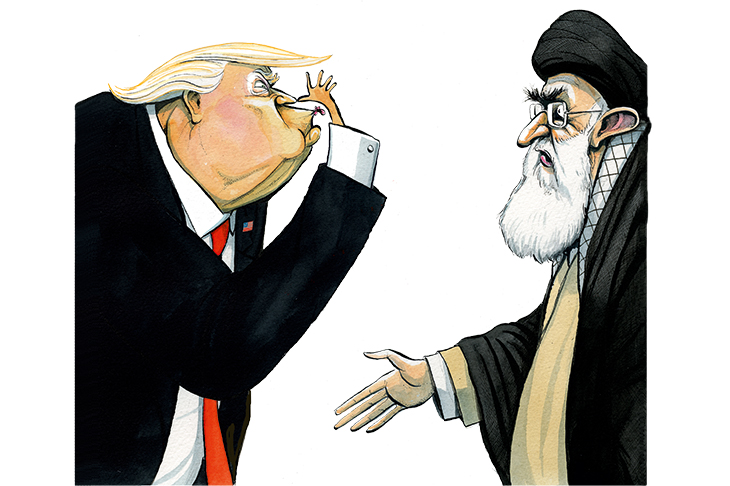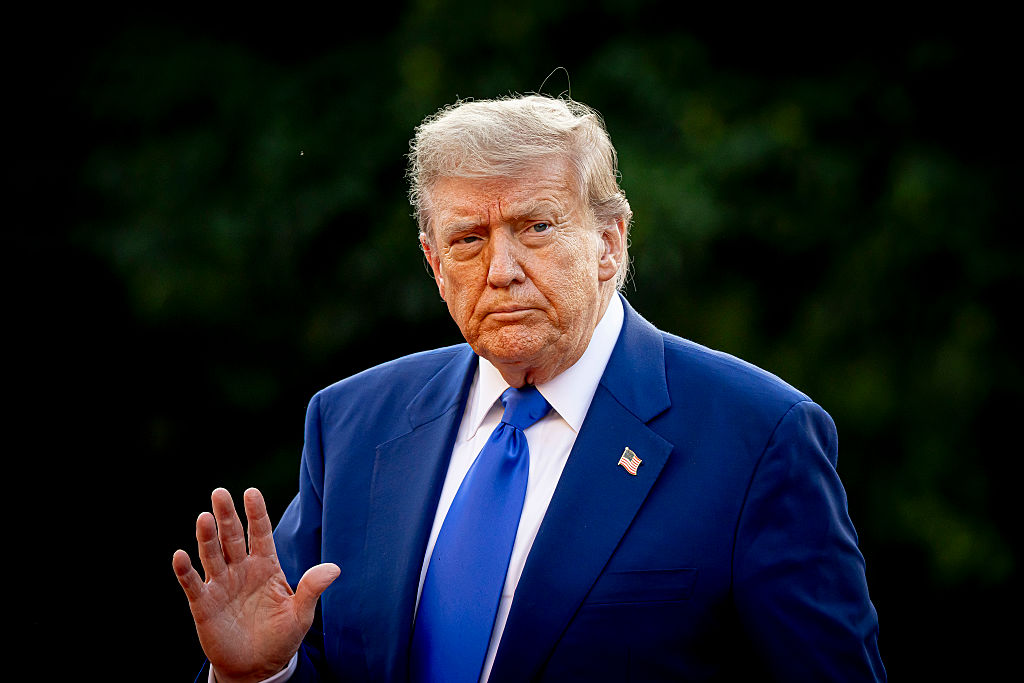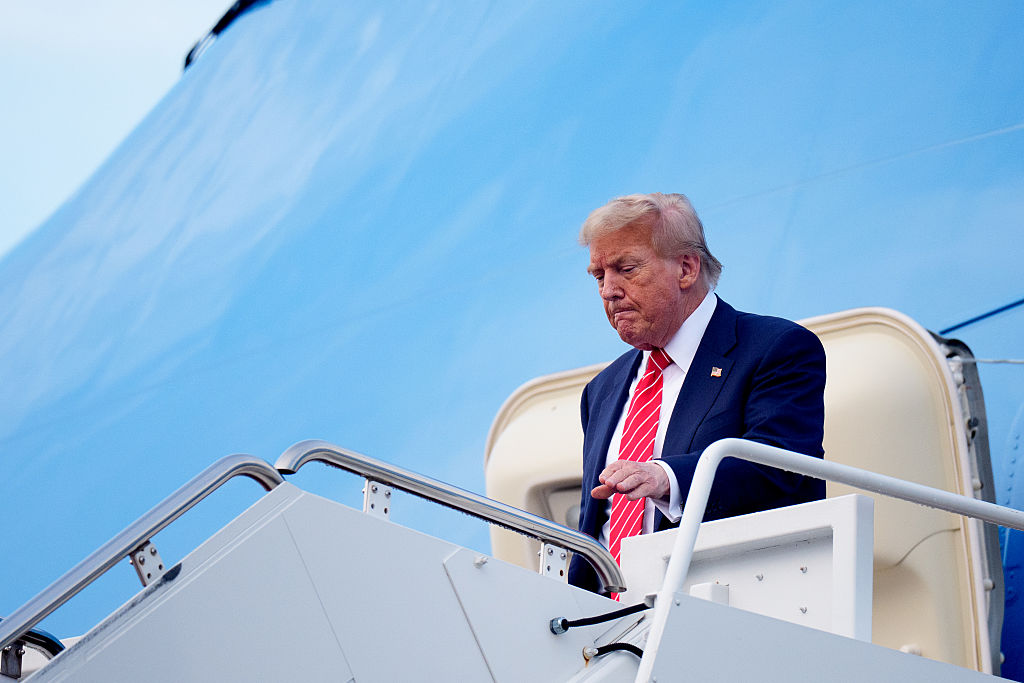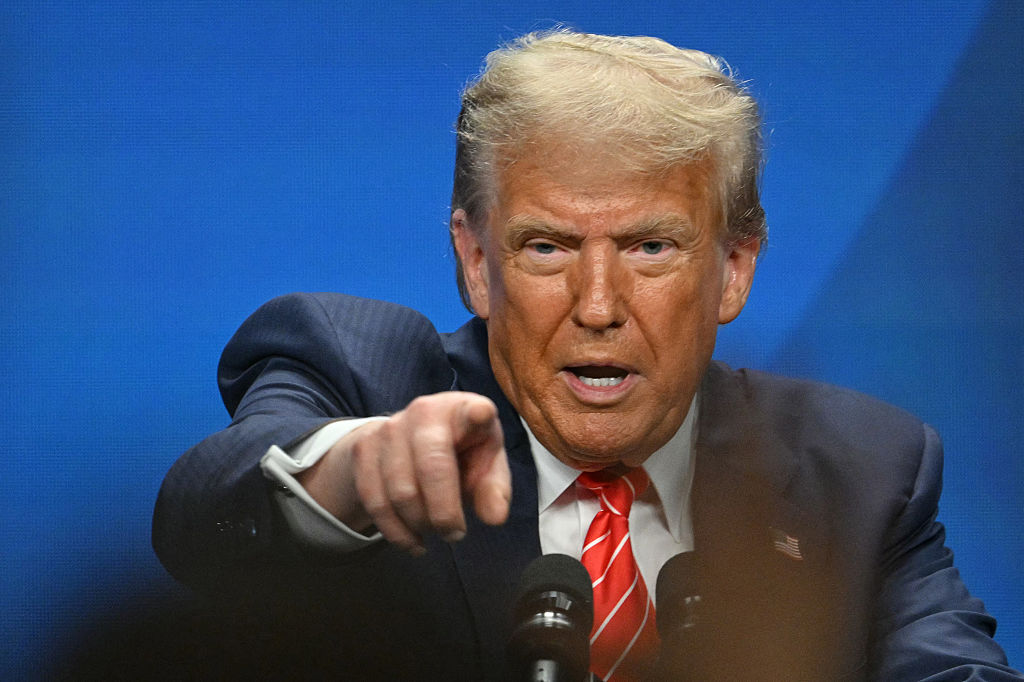Sunday, November 4 marks the 39th anniversary of the storming of the US embassy in Tehran by Ayatollah Khomeini’s militant student thugs, beginning a 444-day hostage crisis that probably cost Jimmy Carter a second presidential term and took a toll on the collective American psyche since equalled only by the September 11 attacks on the Twin Towers and the Pentagon.
Coincidentally, it’s also the day America ratchets up already devastating economic sanctions against Iran, following Washington’s unilateral withdrawal in May from the nuclear treaty brokered by Barack Obama. No doubt Donald Trump will exploit the propitious timing to highlight how, four decades on, Iran remains, in his view, entrenched in its hostility to US interests in the Middle East.
How ironic, then, that casting Iran as a uniquely rogue state just got a lot more difficult for President Trump because of another notoriously undiplomatic act inside a diplomatic mission — this one by a 15-man Saudi hit squad on a murderous mission to silence a dissenter in neighboring Turkey.
Officially, Trump is imposing sanctions on the heart of Iran’s economy because of the country’s alleged nuclear treaty violations and its failure to curb its ballistic missile program. This is despite the fact that the UN’s nuclear watchdog, the European Union, Britain, Russia and China all remain convinced that Iran is abiding by the strictest monitoring program ever imposed.
The endgame for Trump, though, is regime change. It’s a strategy based not on military intervention — the US would never dare to attack Iran — but on the hope that oppressed Iranians will rise up against the mullahs as they face the indignity of starvation without meaningful representation. The history of sanctions on regimes suggests a different outcome, because they provoke nationalist outrage among the population directed not so much at the ruling elite inside the country as at those who in a distant land so cruelly impose them.
Trump’s Middle East policy — anchored on supposed ally Saudi Arabia getting into bed with Israel to contain their common erratic foe Iran — isn’t gaining much traction at home either.
Even before the Saudis finally admitted that the Washington Post columnist Jamal Khashoggi had died in a ‘fistfight’ in its Istanbul consulate, a poll revealed that only 4 percent of Americans considered Saudi Arabia an ally. (Given the margin of error and the widespread revulsion caused by news of Khashoggi’s killing, there could now be literally no one in the US who holds such a positive view.) An Economist-YouGov survey last week also made for sober reading. Only 37 percent of Americans now consider Israel to be an ally, a figure that plummets to 25 percent for those between 18 and 29.
Small wonder that in recent months Iran’s political and religious elites have toned down their usually apocalyptic war rhetoric. They have reason to be smugly elated at how the Saudis especially need no help in digging themselves into an ever deeper hole. The latter now have such little credibility on the world stage that when the kingdom’s Foreign Minister Adel Al-Jubeir last week declared Saudi Arabia to be a ‘-beacon of light’ fighting ‘dark’ Iran, the entire civilized world fell off its metaphorical chair clutching its sides in laughter.
Trump’s base remains as loyal to Israel as it is hostile to Iran, and he is no different from previous presidents in that his overarching concern in the Middle East is always the Jewish state’s security (and is the real reason for containing Iran). And when it comes to domestic American politics, the issue might be a moot point. The Iranian hostage crisis and 9/11 were anomalies: Americans do not decide who to vote for based on foreign policy.
It’s also true, however, that Trump’s hand would be much weaker when dealing with Iran if the (pro-nuclear treaty) Democrats take back the House and/or the Senate in next week’s midterms. If that happens, Iran would be likely to struggle through until having the last laugh if Trump failed to win again in 2020.
In the meantime, Iran can take comfort that the neocons are also in a terrible muddle. Their support for Israel remains steadfast. But they are calling for sanctions against Saudi Arabia in the wake of the Khashoggi affair, criticizing Trump for not imposing tough enough sanctions on Iran, and pissing off pretty much every other country by insisting that they reduce Iranian oil imports to zero or likewise face sanctions.
It’s classic imperial hubris. The fact is that no one but Israel is any longer willing to go along with this irrational, decades-long anti-Iran vendetta on the part of America, and renewed sanctions are therefore unlikely to have their desired effect.
Trump wants Saudi Arabia and Russia to increase their own exports to help make up for the deficit caused by reduced Iranian output, but analysts are doubtful that Saudi Arabia has the capacity or that Russia — Iran’s ally — has the political will. The list of other countries seeking to waive sanctions for their major oil companies on the grounds of economic necessity (or, as with India, ignoring the threat of reprisals) is growing by the day.
Already Trump has reportedly backed down under pressure from the EU from a requirement that Iran be suspended from the international bank transfer system known as SWIFT. Back in August, the EU banned its companies from complying with renewed US sanctions on Iran. Notwithstanding that Denmark, Sweden and France are currently in a diplomatic spat with Iran, accusing the regime of sending its own operatives to assassinate exiled Iranian dissidents in Europe, as an economic bloc the EU continues to eye billions of dollars worth of trade deals with the country. Perhaps most crucially, Turkey — which imports more than half of its oil from Iran — is also seeking a waiver, as it continues to exploit the fact it has audio and visual evidence of Khashoggi’s killing. If this were released, the ensuing turmoil would force the resignation of Saudi Crown Prince Mohammed bin Salman.
Few would envy Washington’s dilemma, then, as it weighs whether to call the Turkish President Recep Tayyip Erdogan’s bluff. But it’s also increasingly clear that fewer still would be anything other than elated to witness this vindictive anti-Iran policy come back to haunt those who devised it.
This article was originally published in The Spectator magazine.

























